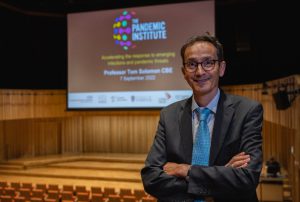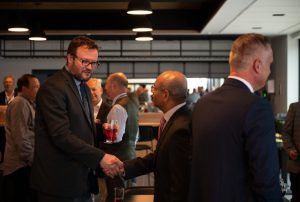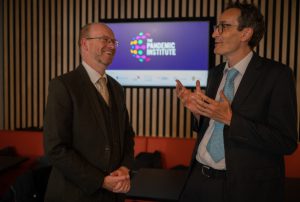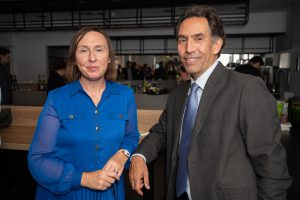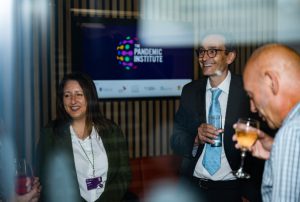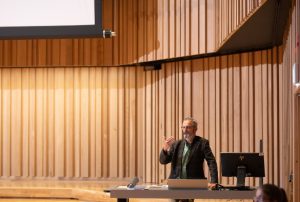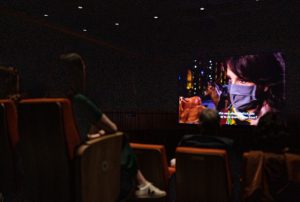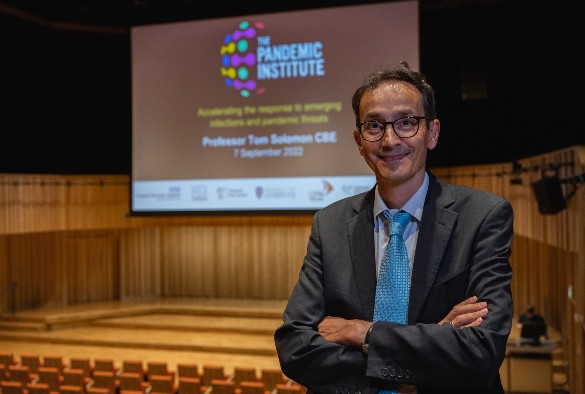
Professor Tom Solomon
The Pandemic Institute marked its first anniversary with a special event at the University of Liverpool’s Yoko Ono Lennon Centre on 7 September.
The Pandemic Institute Director, Professor Tom Solomon, gave attendees an overview of activity to date and future ambitions. This was followed by a screening of Making Pandemics, a documentary by Marie-Monique Robin, starring Juliette Binoche – alongside appearances from the University’s Professor Matthew Baylis and Professor Eric Fevre.
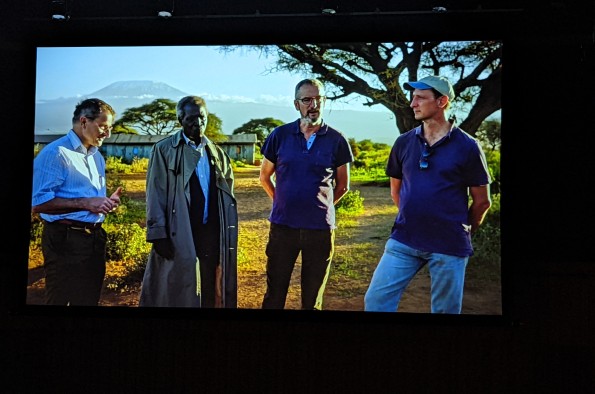
Still from Making Pandemics film
The Pandemic Institute is based in Liverpool, a city at the leading edge of innovative public health responses, and with a rich history of pandemic science. During COVID-19 the city of Liverpool’s civic leadership, academic institutions and health infrastructure combined powerfully on testing, vaccine development and the Events Research Programme. The collaboration led to the most agile public health response seen across the nation. The Pandemic Institute is the next stage in this journey.
The University of Liverpool is a founding partner of The Pandemic Institute, whose other partners include the Liverpool School of Tropical Medicine, Liverpool City Council, Liverpool John Moores University, Liverpool University Hospitals NHS Foundation Trust, Liverpool City Region Combined Authority and Knowledge Quarter Liverpool.
In Summer 2022, The Pandemic Institute awarded nearly £500,000 to Liverpool researchers to help tackle the growing threat of monkeypox, with more funding calls to be announced soon. All of these projects will help to build strong, sustainable, resilient communities that are better prepared for future crisis events of the scale of the COVID-19 pandemic. The Pandemic Institute also works closely with leading health care company DAM Health, supporting the next generation of scientific, medical and humanistic students in Liverpool with global ambitions through the Student Excellence Awards.
Professor Tom Solomon, Director of The Pandemic Institute said: “I am extremely proud of all The Pandemic Institute has achieved in its first year and the long-term partnerships and connections that have been formed to help the world respond more effectively to emerging infection problems. We plan to continue to build on these in the coming year and look forward to announcing more funding calls and research projects imminently.”
- Professor Tom Solomon
- Welcome reception
- Welcome Reception
- Welcome reception
- Welcome reception
- Professor Matthew Baylis
- Attendees at the Tung Auditorium
- Making Pandemics film screening
